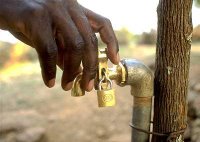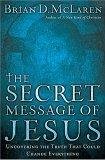A Doctor Refers the Great Physician
 I’ve got to tell you guys the news. Billy is a man in his eighties and stubbornly resistant to the pleadings of his family and others to entrust himself to Christ as the One to transform, redeem, and motivate his life. For 41 years, his daughter, a quietly strong and radiant believer, prayed for her Dad to yield his self-sufficient nature to her Savior, Lord, and Friend. This past week he did!
I’ve got to tell you guys the news. Billy is a man in his eighties and stubbornly resistant to the pleadings of his family and others to entrust himself to Christ as the One to transform, redeem, and motivate his life. For 41 years, his daughter, a quietly strong and radiant believer, prayed for her Dad to yield his self-sufficient nature to her Savior, Lord, and Friend. This past week he did!Kate’s sister (Kate is the praying daughter mentioned in the preceding paragraph) called last week and said, “Kate, you need to call Daddy and see if he says the same thing to you that he just told me”. Then she hung up without explanation. Kate, half alarmed yet excited, called her father. He answered the phone and said,” let me tell you about God”. The story unfolds like this.
Billy and his wife want to move into an assisted living community for health reasons. To do so requires a completed health form signed by a physician. Perturbed that his doctor wouldn’t sign off on the form without performing an actual check-up, Billy finally gave in, made the appointment, and showed up for the doctor to do the deed. The doctor saw Billy and sent him directly to the hospital for blood work and other tests.
At the hospital, the doctor assigned to see Billy, an Atlanta physician who is understated in his ways, yet respected and quite the gentleman, as is often the case for truly native Atlantans, was in the midst of a rough day. Later, he would tell Kate that God had worked in her Dad’s life in spite him more than because of him. He was just in a moody state of mind and bothered because his partner had not shown up, his workload was high, and taking care of a health form was not on his list of things that mattered. Nonetheless, his nurse intervened and said, “Dr. Kinard, I think Mr. Billy is ready to know Christ.” Startled out his pity party, he asked the nurse to show Billy in and leave them alone for a bit to talk.
“I knew he was good doctor”, Billy exclaimed to Kate, “but that man is a good preacher too! He talked to me a long time and he explained a lot and from the bible.” Billy went on, “Christ is in my life now and I know it.”
Kate cried. Her ladies group – some of whom had joined her in praying for 20 of the last 41 years, cried too. She shared the story with our fellowship on Sunday. We cried. We also rejoiced and bowed our hearts to Christ in worship, thanksgiving, and praise. How awesome the gospel! How gracious our Lord! How faithful our God!
Anyway, I had to say something. I changed the names around a bit for anonymity’s sake but there it is. I hope you considered it worthwhile. May it encourage and may we persevere to pray.
Read more!



